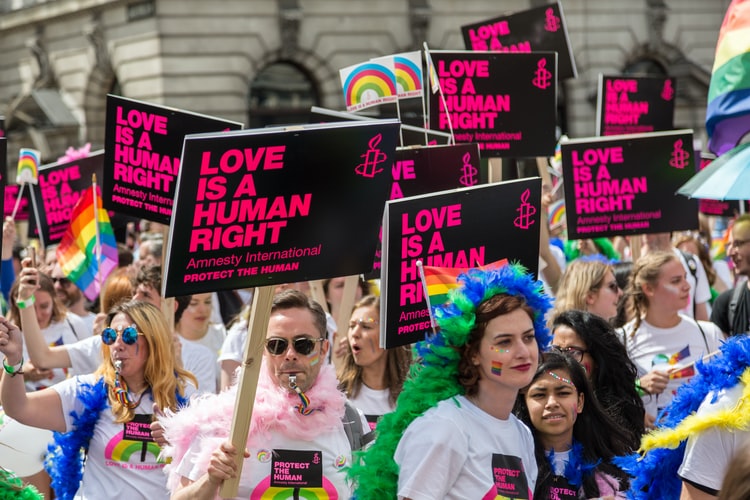
Well, that didn’t take long.
The United States has suffered greatly since the death of Supreme Court Justice Ruth Bader Ginsburg. She was one of the most ardent defenders of women’s and gay rights. She championed the Obergefell v. Hodges case, which resulted in the legalization of gay marriage. Now, two Supreme Court Justices want to tear it all down.
Justices Clarence Thomas and Samuel Alito issued a statement earlier this week declaring that they wanted to repeal their previous decision on the Obergefell case, therefore stripping the LGBTQ+ community of their right to marry. Their reasoning? In Thomas’ own words, the court’s previous decision “enables courts and governments to brand religious adherents who believe that marriage is between one man and one woman as bigots, making their religious liberty concerns that much easier to dismiss.”
See the problem here?
The first amendment in the Bill of Rights is often interpreted to require separation of church and state. The line that states this, usually assigned to Thomas Jefferson, is that the establishment clause of the amendment declares that they build a “wall of separation between the church and state.” This prevented one’s religious beliefs from interfering with their ability to serve the American people. This law ought to invalidate Thomas and Alito’s statement. Technically, they are not supposed to consider how any decision they’ve made would impact people’s religious beliefs, unless it specifically infringes on the right of religious liberty.
But guess what? It doesn’t even matter. There will likely never be a time in the American government that church isn’t somehow connected with state. There is a National Prayer Breakfast held in Washington D.C. every year hosted by members of Congress – it really doesn’t get much more obvious than that. The White House is adorned with specifically Christian-oriented decorations during the winter holidays, including multiple Christmas trees. It shouldn’t be shocking anymore that there are religious reasons why people think same-sex marriage is immoral. That right is now in very serious danger.
This address from two Justices is only one more stepping stone on the path to reevaluating the decision that Obergefell represents. Amy Coney Barrett, who President Trump has nominated for the Supreme Court, has been very vocal about her Catholic beliefs. In 2015, she voiced her dissent with the Supreme Court’s decision to allow gay marriage. Should she truly be appointed to the Supreme Court, it’s almost inevitable that the decision will be appealed. Obergefell barely made it last time, scraping by with a 5-4 outcome. Barrett would sway that vote in the opposite direction.
I don’t know how many times the LGBTQ+ community needs to say it for it to sink in: gay rights are not – and should not be – a political issue. Someone’s mere existence should not be perceived as a threat to “religious liberty.” I’m amazed that this is still up for debate in the year 2020. There are bigger fish to fry. Aren’t we still in the middle of a global pandemic? The focus should not be on whether or LGBTQ+ individuals should be legally allowed to declare their love for one another.
All things considered, removing Obergefell invalidates the existence of millions of LGBTQ+ Americans, including those who are already married. There should be no reason at all that LGBTQ+ individuals pose some kind of a threat to those with religious values. By even considering repealing the case, the rights of such a marginalized community will be greatly impacted. Repealing this decision will be a major step backward in the fight for civil rights for all minorities in this country. The LGBTQ+ community is in serious trouble, and something needs to be done about it.
